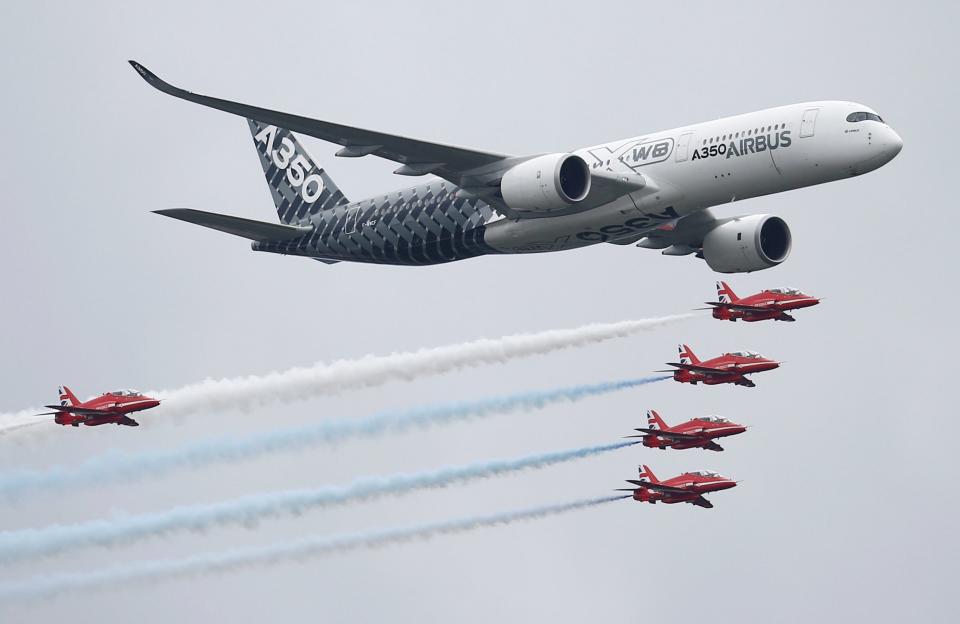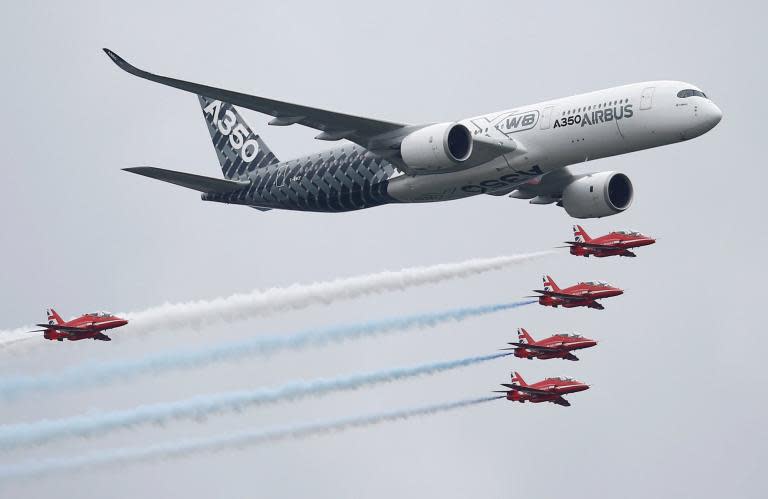Airbus: What would happen if the aerospace giant leaves UK over Brexit
Airbus has said it may have to pull out of the UK if the government does not secure a post-Brexit trade deal with the EU. The move would directly impact thousands of jobs and would be likely to have more far-reaching impact across the UK, with key engineering skills potentially lost for good. But, just how big a loss to the UK economy would Airbus be?
High-value skills
The aerospace firm directly employs 14,000 people at 25 UK sites including Bristol, Portsmouth and north Wales, but if it were to quit the UK it would have knock-on effects on 4,000 of suppliers of services, parts and materials that go into making its planes, helicopters and defence equipment. The firm’s sprawling supply chain supports an estimated further 110,000 jobs, many of which would be at risk.
Airbus’ UK business includes some of its highest-value and most specialised work. Its Stevenage plant pioneers space technology while much of the rest of its UK operation is dedicated to making wings.
That work is known as the “crown jewels” of the aerospace industry and only a small number of people have the technical expertise required to do it. There are fears that, should this work move abroad, the skills would go too.
The company makes wings for the A320, A330, A340, A350 and A380 passenger planes in the UK, but Airbus’ Chinese arm has been clamouring for the work to be moved.
Airbus UK senior vice president Katherine Bennett told MPs in November that other Airbus divisions would “dearly love” to have the wing-making work. “We do build wings in China now, and believe you me they’re knocking at the door as a result of the situation that we’re in in this country,” Ms Bennett told the Commons Business, Energy and Industrial Strategy Committee.
The government has consistently made noises about boosting the UK’s lacklustre productivity and moving beyond a low-wage, low-skilled economy to a high-tech, high-skilled one. The loss of all or part of Airbus would be hugely damaging to that aim.
Nationwide impact
The company’s 25 sites are spread across nine of the UK’s nations and regions. However, some areas would be disproportionately impacted if Airbus were to leave. Wales would be particularly hard hit, for example. Airbus supported some 11,600 jobs in Wales in 2015, equivalent to 5.8 per cent of all employment in Cardiff.
Economic value
Beyond the human cost of thousands of people potentially being thrown out of work, the hard economic numbers look pretty bad too. A 2017 report from Oxford Economics found that the company contributed £7.5bn to the UK economy in 2015 and paid £1.7bn in taxes.
Knock-on effect on other companies
Around 4,000 companies, ranging from giants like GKN and Rolls-Royce down to much smaller firms supply Airbus. The loss of the firm would represent a hit for the big firms but an existential threat for some of the tiny, more specialised engineering companies. Airbus says it spends around £5bn with UK suppliers, money that many of them could not do without, and for whom there is no alternative buyer in this country.
Suppliers are already experiencing a preview of what might be ahead, says Paul Adams, head of aerospace at management consultancy, Vendigital.
“Airbus is already stockpiling inventory for fear that customs delays could cause production downtime after Brexit,” he says.
“This is putting pressure on the supply chain and could create cashflow difficulties for suppliers to its wing assembly plant in Broughton.”
Defence, security and innovation
Airbus is also a crucial player in the UK defence industry, making airlifters, aerial tankers and advanced combat aircraft including the Royal Air Force’s most advanced fighter jet, the Eurofighter Typhoon. These also contribute towards the UK’s exports with Austria, Saudi Arabia, Oman, Kuwait and Qatar having all purchased Typhoons in recent years.
In addition, Airbus makes the entirety of the UK’s police helicopter fleet, 60 per cent of the air ambulance fleet, and half of the country’s overall civil helicopter fleet.
The company spent €3bn (£2.6bn) on research and development around the world, with a sizeable proportion of that in the UK. Airbus claims its innovations also spill over into the wider economy, raising the UK’s productivity.

 Yahoo Finance
Yahoo Finance 

